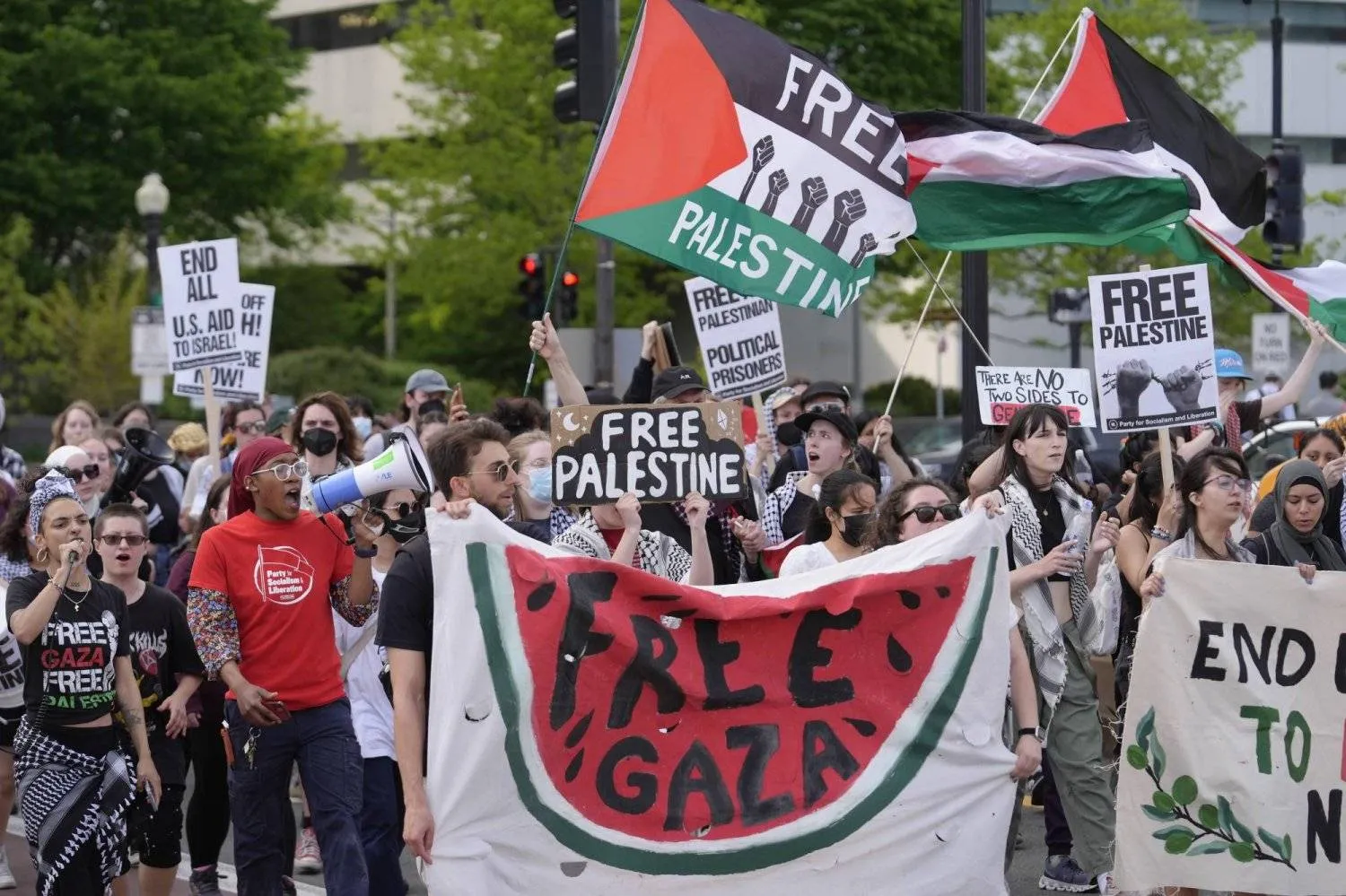While Arab and Muslim American voters supported President Joe Biden in five key battleground states in 2020, a New York Times-Siena College poll released last week shows that Donald Trump led Biden 57-25.
However, these results are unlikely to provide a definitive picture of the decisive voting trends in the November election campaign.
Surprises might emerge in the coming months, especially on the Gaza war, the most controversial issue among Muslim and Arab voters.
Officials in Biden's Democratic campaign have welcomed the decline of the “uncommitted” protesting the President in the primary election votes.
Last February, an exit poll of 527 Muslim voters who participated in Michigan’s presidential primary election showed that 94 percent voted “uncommitted” in protest to Biden’s support for the Israeli government’s war in Gaza.
However, this percentage dropped dramatically in Nebraska, Maryland and West Virginia.
Biden won 90 percent of the votes facing his challenger Dean Phillips in the Nebraska congressman’s home state, while Trump beat Nikki Haley with slightly over 80 percent in the state’s Republican primary.
In Maryland, 10 percent of voters statewide checked the “uncommitted” box and Biden won the majority of the 90 percent.
The exception was in West Virginia where the former president captured 88 percent of the vote there.
Amid indications of a decline in the “uncommitted” campaign protesting Biden, press reports said Trump is making a strategic pitch to Arab Americans who feel betrayed by Democrats in the war between Israel and Gaza and the Middle East in general.
Now, as the election nears, some Arab American donors and activists are considering not just sitting out the race, but working outright to elect Trump.
The Washington Post said that in a private meeting last week in Michigan, Trump’s surrogates did their best to bring them into the fold.
On Tuesday, a group of Arab American donors and activists from around the country convened in Oakland Hills, Mich., for a private dinner initiated by Trump’s former ambassador to Germany Richard Grenell.
Grenell, who declined comment, is not a formal member of the Trump campaign. But Trump has recently referred to him as “my envoy” and he is seen as a contender for a top national security position if Trump prevails in November.
Tiffany Trump’s husband, Michael Boulos, and his father, Massad Boulos — a Lebanese business tycoon — also attended. The dinner is one of many being organized by Trump’s associates with Arab American leaders in several battleground states.
It’s not at all clear Trump would be better for Arab Americans. During his first term, he implemented multiple policies the community disliked, including arbitrary immigration restrictions from Muslim-majority countries and cutting funding for humanitarian aid for Palestinians.
There’s good reason to think Trump would be even more supportive of the Israeli government than Biden.
Meanwhile, Democrats are betting on a decline of the “uncommitted” campaign against Biden between now and November, in case his administration exerts efforts to stop the war in Gaza, release hostages and prisoners from both sides, and offer a concrete path to resolving the conflict.
But the fact that this opening even exists for a pro-Trump Arab American movement should be a wake-up call for the Biden team particularly that the entire presidential race has been decided by a few votes in five swing states, some of which are home to a large number of Arab and Muslim communities.









